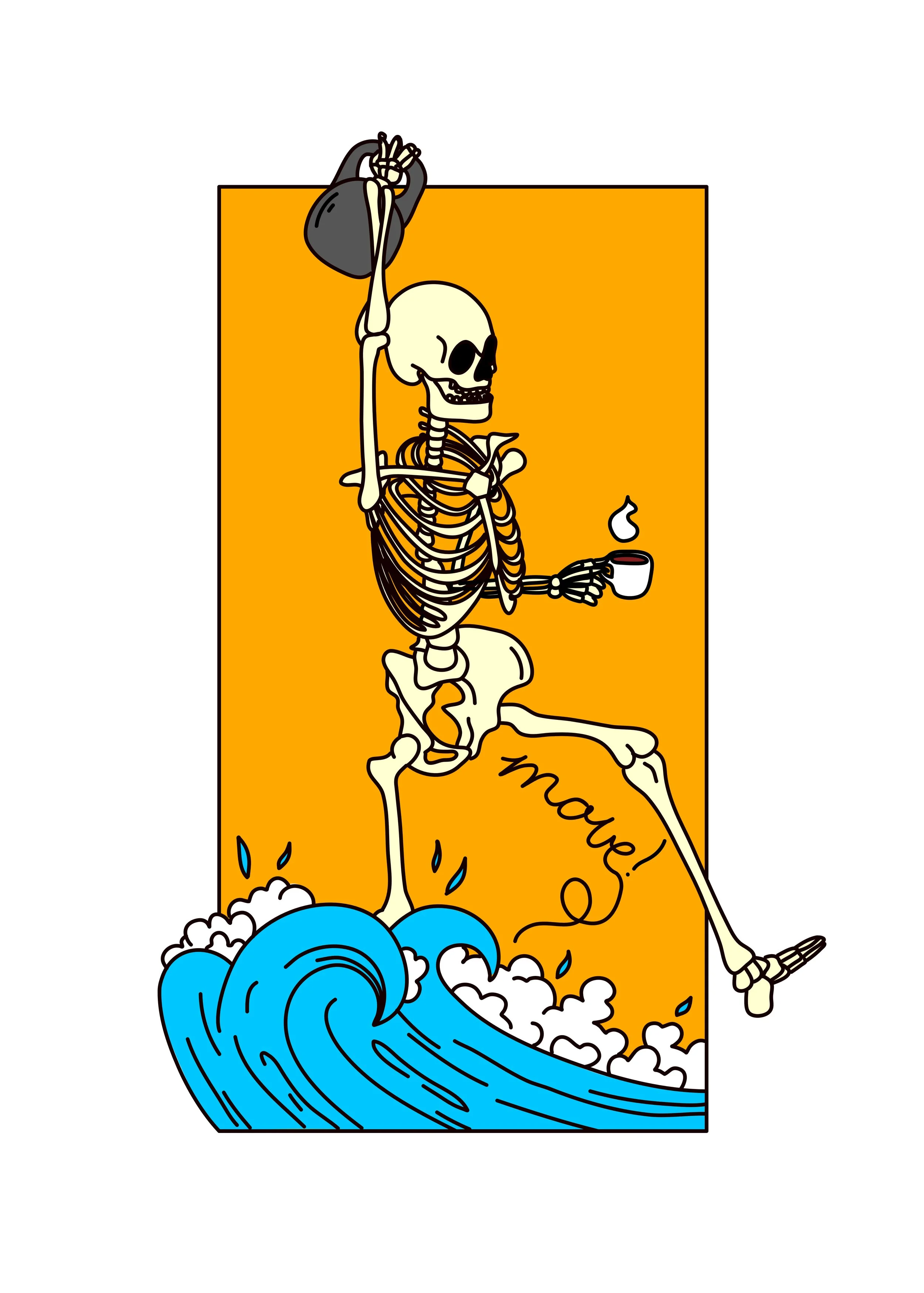Meditation and Stress.
Next up in the “rewards” of meditation series we have stress reduction.
But first, a quick (and very simplified) look at our body’s stress response.
When we experience stress, various regions of our brain begin working to assess and decode the threat at hand.
After the threat assessment, our brain triggers what is commonly called our “fight or flight response”.
Our “survival systems”, namely our sympathetic nervous system and adrenals kick into gear.
Physical symptoms appear - increased heart rate, muscle tension, sharpened hearing, improved alertness, etc.
Your adrenal cortex is then signaled to flood your body with adrenaline and up to thirty different hormones used to address stressful situations.
Your immune system gets scrambled as your body tries to more efficiently utilize resources to deal with the perceived threat.
As you can see, our stress-response is a really beautiful system that when utilized appropriately is a symphony of different neurological and physiological functions.
The issue with the system in today’s world however, is with its triggering.
What evolved as a way to help us scurry up a tree away from a dangerous animal, or engage in combat with an invading tribe, does not appropriately serve the person reading about an impending economic collapse in the morning paper.
Meaning, most folks’ daily lifestyle subjects them to an enormous amount of “perceived” threats. Whether it be around the clock fear-mongering news or phone updates on the latest pandemic death toll, we are now confronted with an unprecedented volume of stressful stimuli.
As noted, our stress response has yet to adapt to the modern existence. The result is serious health ramifications that stem from a system that is chronically “turned-on” - compromised immunity, anxiety, hormonal imbalance, adrenal fatigue, etc.
To finally bring it back to the topic of meditation, stress awareness (!) and management is now supremely important to optimizing your health and quality of life.
Countless studies have shown that a consistent meditation practice reduces feelings of stress and anxiety - some studies revealing as much as a ⅓ reduction in reported stress after only 30 days of a dedicated practice.
As discussed in the last post, this reduction happens as a result of meditation pulling a person more deeply into the present moment. Once settled into the now, an individual can more accurately feel/assess their environment, body, emotions, and thought patterns.
The more we do this, the more we bring awareness to the fact there actually is no immediate danger or threat requiring our stress-response system to be firing.
It seems silly, but I think a fun way to think of it is your body having this realization and then ensuing conversation that goes something like:
“Wait. Everybody, wait. He’s literally just sitting on the couch. Yup. He’s on the couch. Is that tea? It’s tea!! Wait!! Why are we working?! He’s LAYING DOWN!”
You can think of meditation as giving your body an exciting update that you are OKAY.
So go ahead and set a timer for a few minutes, get comfortable, do your best to settle in, and give your hard-working stress-response system a really (!) well-earned vacation.
“It’s ruinous for the soul to be anxious about the future and miserable in advance of misery, engulfed by anxiety that the things it desires might remain its own until the very end. For such a soul will never be at rest— by longing for things to come it will lose the ability to enjoy present things.” — Seneca

